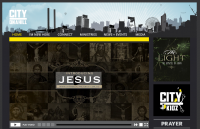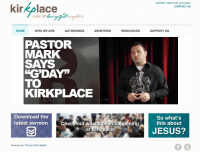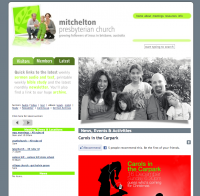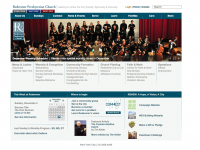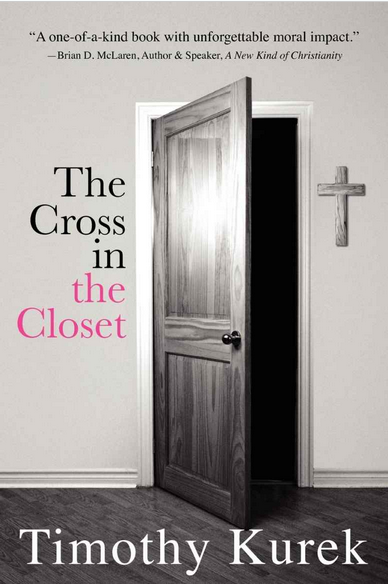Like it or not, a recent article in the Briefing has fired up an old argument on personal evangelism that Gen Ys like me, think of in some way analogous to the worship wars… it happened in the past, and we’re slightly too post-modern to think there’s only one right answer to the question.
In a nutshell, John Dickson’s excellent book Promoting the Gospel (and other work) suggested that “evangelists” are a special category of person, much like preachers and teachers – and while all Christians are called to be part of the body of Christ, which is called to participate, together, in the Great Commission, and perhaps, the “Mission of God,” we’re not all called to play the specific role of heralds of King Jesus, proclaiming, via words, directly, and persuasively, the case for Jesus. Now, he says we should take whatever opportunities we have to give the reason for the hope that we have – but he wants the emphasis to be more on what we can achieve together, and what we can achieve in the way that we live our lives, and love the people around us, pointing people to Jesus. You can read my review of the book here.
Some people didn’t like that idea. They had an argument. Now, Tony Payne, at the Briefing, has (not intentionally), restarted the argument with his piece on Personal Evangelism.
Like a few others, I can’t really tell the difference between what he say the individual’s role is, and what John Dickson says the individual’s role is, which seems to boil down to using the skills God gives you as gifts for God’s kingdom and for those outside it.
It seems most people accept these two truths, but reach different conclusions:
1. We’re each called to serve God with the different gifts he has given us, as we worship him and take part in his mission (or worship him by taking part in his mission).
2. Some people are better at evangelism, and even human relationships, than others.
It’s this last bit of the logical chain that seems to divide people.
3. If people are better at evangelism than others, we should assume that they are gifted in that area and see part of our role, in the body, as freeing, supporting, and equipping those people to serve with those gifts. So that we’re on mission together.
Other people seem to say this is an area where gifting doesn’t come into play – because we all have to evangelise. But we’re all evangelising in that point 3.
I wonder if it’s easier to make a judgment, like Dickson’s, that not all people are evangelists if you are one, and if part of your job is helping clean up the mess that well-intentioned people make – perhaps, for example, those who stand on street corners and yell at people about sin and judgment (this isn’t really a post about the relative merits of street preaching).
Anyway.
I think Paul was an evangelist. That “evangelist” was a role that distinguished him from other figures in the early church. That he wasn’t the only “evangelist” – and that he wanted people to imitate him, in their lives as they were able, even if they weren’t especially gifted as evangelists – because promoting the gospel is about more than words – by sacrificially offering their gifts to the work of the Gospel. And we’re one body. Working for one mission. Together.
“Personal evangelism” is a bizarre outcome of western individualism being applied to the work of the church. We might live in an age of individualism – but part of the message of the gospel might have to be a counter-cultural indictment of that idea.
But each of us is called to take part in mission and evangelism, with the people we know. I’m going to suggest, in the next 3,000 words, that when it comes to evangelism as persuasion, all Christians are called to evangelise by ethos – being Christ like, and to be prepared to do logos (logic and knowledge about God and the Gospel), and I wonder if “pathos” and a strong mix of logos and ethos is what marks an “evangelist.”
So. Here are some thoughts I have, after thinking about how Paul frames his evangelism and approach to communication, that I think are somewhat relevant to the debate. This will be part of my Masters project next year, so shh… don’t tell anybody…
Oratory, Cicero, Paul, and Evangelism
Aristotle literally wrote the book On Rhetoric. He said there were three elements of successful persuasion:
1. Ethos: Persuasion is achieved by the speaker’s personal character when the speech is so spoken as to make us think him credible.
2. Pathos: Persuasion may come through the hearers, when the speech stirs their emotions.
3. Logos: Persuasion is effected through the speech itself when we have proved a truth or an apparent truth by means of the persuasive arguments suitable to the case in question.
After Aristotle, these elements were bounced around in different shaped triangles depending on which element you thought was more important. There were literal schools of thought, like the Attic School, who thought flashy eloquence, which played with the emotion, were easier and more convincing than dry, boring speeches that were full of logic. And there were other more classical types, like Cicero, who wanted to try to balance out the triangle into something more equilateral.
I’m fairly convinced that Paul, who was a Roman citizen from Tarsus, was educated in rhetoric in Tarsus, which had famous rhetorical schools (see Strabo, the historian, on Tarsus). Cicero was the governor of Tarsus just after he wrote De Oratore – this is a guess, but I reckon there would have been a bit of Cicero on the curriculum of rhetorical training in Tarsus.
Cicero didn’t like the flashy, insubstantial, approach to Rhetoric championed by the Attic school of rhetoric, and he criticised it extensively.
Paul, in his letters to the Corinthians, is engaging with the rhetorical grandchildren of the Attic movement – the Second Sophistic – and he deploys pretty much the same argument against them that Cicero did, championing the triumph of substance, both in content – or logos – and character – or ethos, over style – the ability to speek eloquently (pathos).
Paul speaks against the Corinthian desire to have the flashiest communicators lead their churches –
Here’s an interesting comparison between something Cicero says about approaching a speech with trembling, and what Paul says about his approach in Corinth…
Cicero:
For the better the orator, the more profoundly is he frightened of the difficulty of speaking, and of the doubtful fate of a speech, and of the anticipations of an audience… While as for him who is un-ashamed — as I see is the case with most speakers, — I hold him deserving not merely of reprimand, but of punishment as well. Assuredly, just as I generally perceive it to happen to yourselves, so I very often prove it in my own experience, that I turn pale at the outset of a speech, and quake in every limb and in all my soul
And Paul:
And so it was with me, brothers and sisters. When I came to you, I did not come with eloquence or human wisdom as I proclaimed to you the testimony about God. 2 For I resolved to know nothing while I was with you except Jesus Christ and him crucified. 3 I came to you in weakness with great fear and trembling. 4 My message and my preaching were not with wise and persuasive words, but with a demonstration of the Spirit’s power,5 so that your faith might not rest on human wisdom, but on God’s power.
Paul is subverting the rhetorical expectations of his audience – but I’d say he’s doing it by harking back to an older rhetorical convention. He condemns the Corinthian addiction to eloquent oratory, and its encroachment on the church. But this isn’t to say that Paul wasn’t capable of presenting well when the need arose – Acts portrays him as a pretty accomplished orator, as comfortable preaching to a group of religious philosophers in Athens, quoting their ancient poets back at them during his Areopagus address (Acts 17:28), in court rooms (Acts 24), and before councils (Acts 23:1-9), governors (Acts 24, 25:1-12), and kings (Acts 25:13-26:32) – all places that orators would commonly perform their tasks as entertainers, philosophers, or advocates.
Imitation isn’t just about flattery
Here’s another cool thing before I get to the point (hint – I think a special role of evangelist might potentially be related to the the orator – whose job it is to persuade).
Here’s what Cicero says about choosing who you copy.
“For nothing is easier than to imitate a man*s style of dress, pose or gait. Moreover, if there is a fault, it is not much trouble to appropriate that and to copy it ostentatiously… he did not know how to choose the model whom he would most willingly resemble, and it was positively the faults in his chosen pattern that he elected to copy. But he who is to proceed aright must first be watchful in making his choice, and afterwards extremely careful in striving to attain the most excellent qualities of the model he has approved… “
This is pretty much what the Corinthians were doing in Corinth and in the Second Sophistic movement – 100 years after Cicero wrote this. So he didn’t convince everybody. Here’s how Paul addresses this practice…
31 So, whether you eat or drink, or whatever you do, do all to the glory of God. 32 Give no offense to Jews or to Greeks or to the church of God, 33 just as I try to please everyone in everything I do, not seeking my own advantage, but that of many, that they may be saved.
11 Be imitators of me, as I am of Christ.
This comes a bit after Paul says he is prepared to become all things to all men to win some, in 1 Cor 9, which Dickson really nicely sums up in his book:
“Following the example of Paul and Jesus does not necessarily mean that we do what they did. It means that we live by the same flexible ethos, seeking the good of many so that they may be saved.”
I would suggest that one area where Paul may mean we can do what he did – if our gifts and skill sets allow – is imitating him by being a faithful persuader, or evangelist, for the cause of the gospel. I think Dickson is right to warn that we won’t all have Paul’s training, abilities, or specific calling – so won’t all feel comfortable doing what he does, but, within limits, we can imitate him by using what we have to serve the kingdom of God (cf Romans 12).
The foundational importance of Ethos
Here’s what I’m thinking. It’s not rocket science. But it has the benefit of this oratory stuff backing it up. We’re all called to persuade people of the truth of the gospel, with whatever we have at our disposal – but the most powerfully underrated element of persuasion is not words and knowledge (logos), or fine sounding words that appeal to the emotions (eloquence and pathos), but personal character and living out what you believe (ethos).
I’d say we’re all called to live like Jesus, as an act of evangelism (though also because that’s the goal of the Spirit’s work in us – see Romans 8:29) – but we’re not all called to persuade with pathos (or even logos – beyond knowing the essentials – Christ, and him crucified).
Here’s what Cicero says about the importance of believing your own press (or the press that you’re producing).
“I give you my word that I never tried, by means of a speech, to arouse either indignation or compassion, either ill-will or hatred, in the minds of a tribunal, without being really stirred myself, as I worked upon their minds, by the very feelings to which I was seeking to prompt them.”
But showing your character (and having character to show) is an essential part of Cicero’s approach to persuasion. Though he was prepared to fudge character where necessary.
“Now feelings are won over by a man’s merit, achievements or reputable life, qualifications easier to embellish, if only they are real, than to fabricate where non-existent… Moreover so much is done by good taste and style in speaking, that the speech seems to depict the speaker’s character. For by means of particular types of thought and diction, and the employment besides of a delivery that is unruffled and eloquent of good-nature, the speakers are made to appear upright, well-bred and virtuous men.”
But virtue is important, because bad people can use oratory to bad ends.
“For if we put the full resources of speech at the disposal of those who lack these virtues, we will certainly not make orators of them, but will put weapons into the hands of madmen”
Here’s how Paul shows that he really lives, and believes, his message, when he again defends his lack of eloquence in 2 Corinthians 10-13.
He defends his ministry as a triumph of ethos over the eloquence of the “super apostles” – even though he can out apostle the super apostles. He makes it clear that imitating Christ means being prepared to imitate Christ for others, here are a couple of what I think are the important bits that make this case… in Paul’s reluctant string of boasting in 2 Cor 11:
23 Are they servants of Christ? I am a better one—I am talking like a madman—with far greater labors, far more imprisonments, with countless beatings, and often near death. 24 Five times I received at the hands of the Jews the forty lashes less one. 25 Three times I was beaten with rods. Once I was stoned. Three times I was shipwrecked; a night and a day I was adrift at sea; 26 on frequent journeys, in danger from rivers, danger from robbers, danger from my own people, danger from Gentiles,danger in the city, danger in the wilderness, danger at sea, danger from false brothers;27 in toil and hardship, through many a sleepless night, in hunger and thirst, often without food, in cold and exposure. 28 And, apart from other things, there is the daily pressure on me of my anxiety for all the churches. 29 Who is weak, and I am not weak? Who is made to fall, and I am not indignant?
30 If I must boast, I will boast of the things that show my weakness.
And 2 Cor 12:
9 But he said to me, “My grace is sufficient for you, for my power is made perfect in weakness.” Therefore I will boast all the more gladly of my weaknesses, so that the power of Christ may rest upon me. 10 For the sake of Christ, then, I am content with weaknesses, insults, hardships, persecutions, and calamities. For when I am weak, then I am strong.
11 I have been a fool! You forced me to it, for I ought to have been commended by you. For I was not at all inferior to these super-apostles, even though I am nothing.
What Ethos based gospel persuasion looks like
Paul lives his message. I’d argue this is what he calls all Christians to imitate – demonstrating the strength of the gospel in our weakness. Imitating the crucified Jesus.
But he also knows and speaks his message appropriately to his circumstances. I’m not sure this skill is transferrable to all people everywhere, this certainly isn’t the case from experience. This is where I think the evangelist role might kick in – people who are skilled in speaking and persuading people regardless of their background.
For the Corinthians, whose ethos was broken by their pursuit of status-boosting eloquence, he resolved to know nothing but Christ, and present him plainly.
At the Areopagus (Acts 17), he quoted poets, turned his audience against each other by pointing out the philosophical differences between Stoics and Epicureans, and appeared to stick to the conventions of presenting a new God to the Areopagus for their consideration.
When he was in front of a Jewish council, he turned Pharisee and Sadducee against each other because he knew his audience, and knew how to communicate with them.
When he’s talking to Agrippa in Acts 26, he appears to obey the legal rhetorical conventions while also trying to convert the king (Festus, who’s hanging out, listening – says Paul has “great learning”):
24 At this point Festus interrupted Paul’s defense. “You are out of your mind, Paul!” he shouted. “Your great learning is driving you insane.”
25 “I am not insane, most excellent Festus,” Paul replied. “What I am saying is true and reasonable. 26 The king is familiar with these things, and I can speak freely to him. I am convinced that none of this has escaped his notice, because it was not done in a corner.27 King Agrippa, do you believe the prophets? I know you do.”
28 Then Agrippa said to Paul, “Do you think that in such a short time you can persuade me to be a Christian?”
29 Paul replied, “Short time or long—I pray to God that not only you but all who are listening to me today may become what I am, except for these chains.”
Paul uses legal and religious trials, philosophical speeches, and political engagement to present the gospel of Jesus to his audience.
This is evangelism par excellence. I don’t think Christians fail to be Christians when they don’t speak about Jesus at their school council meetings. But I think an evangelist is failing to use their gifts if they can, but don’t.
It’s interesting that this was also the way the early church saw apologetics – both Tertullian and Justin Martyr wrote to the Roman Empire, basically asking for a fairer go for Christians, and each of them (partly to make the case that Christianity wasn’t dangerous), spelled out the gospel for their readers.
There’s an interesting objection to this view of what’s going on for Paul – the idea that he’s a specially gifted orator, based on Paul’s own words in 2 Corinthians 11:6:
“6 Even if I am unskilled in speaking, I am not so in knowledge; indeed, in every way we have made this plain to you in all things.”
There are a few cool, and convincing responses to this.
First – the “even if” isn’t really a concession, he’s simply dealing with the criticism that has been made about him – that he writes like a rhetorician, but speaks weakly.
Second – when he says “unskilled in speaking,” the Greek underlying this is transliterally, “idiot” – and it conventionally referred to people who were trained in rhetoric but weren’t professional orators.
Third, and perhaps more important, Paul is placing a high price on knowledge, and plain speaking – Cicero did too. He suggested you couldn’t be a good orator without either.
On plain speaking:
“…let us select as our models those who enjoy unimpaired health, (which is peculiar to the Attic orators,) rather than those whose abundance is vicious, of whom Asia has produced numbers. And in doing this (if at least we can manage even this, for it is a mighty undertaking) let us imitate, if we can, Lysias, and especially his simplicity of style: for in many places he rises to grandeur. But because he wrote speeches for many private causes, and those too for others, and on very trifling subjects, he appears to be somewhat simple, because he has designedly filed himself down to the standard of the inconsiderable causes which he was pleading.”
On knowledge:
“Yet I maintain that such eloquence as Crassus and Antonius attained could never have been realized without a knowledge of every matter.”
Ethos-based persuasion and evangelism
Interestingly, Dickson picks up on this when it comes to how he defines an evangelist.
First, a bit of a word study to show that evangelism and oratory basically went hand in hand (as, did apologetics).
In the ancient world the noun “gospel” (euangelion) and its verb “telling the gospel” (euangelizomai) were media terms. They always referred to the announcement of happy or important events. News of military victories, national achievements, weddings, births and, in one ancient text, the bargain price of anchovies at the marketplace were all called “gospels”. The modern media term “newsflash” probably comes closest in meaning to the ancient word gospel…
The most well-known “gospels” proclaimed in the ancient world were those announcing the emperors’ achievements. The caesars’ ascensions, conquests and political deeds were all the subject of the gospels of the empire. “Gospel” was very much an imperial term in the period of the New Testament.
His definition of “evangelist” follows this definition of the good news…
“The word literally means gospeller, that is, one who announces the gospel. The term seems to have been coined by the first Christians (it appears nowhere else in Greek literature before the New Testament) as a shorthand way of referring to those in the church who took on the task of proclaiming the life, death and resurrection of God’s Messiah (the gospel) to those for whom this message was still news”
And he doesn’t rule out the option of having gospel conversations with the people you’re in relationships with (so I can’t see how it’s possible he rules out personal evangelism).
In reality, most of our opportunities to speak about Christianity will occur in passing, in the to-and-fro of daily conversation. It should not surprise us, then, that the two clearest passages in the Bible calling on all believers to speak up for the Lord urge them simply to “answer” for the faith—to respond to people’s comments, questions or criticisms with a gentle and gracious reply (Colossians 4:5—6 and 1 Peter 3:15). Most Christians are not “evangelists” (in the technical, New Testament sense of the word) and should not be made to feel the pressure to be something they are not. The Scriptures certainly urge us all to be open about our faith whenever opportunity allows, but doing “the work of an evangelist” (2 Timothy 4:5) is something God’s Word asks only of some of us.
But here’s the fourth characteristic he identifies for an evangelist (after desire to proclaim Jesus, ability to relate well to people, and Christian maturity).
“An evangelist will be clear with the gospel. I do not just mean clear about what the gospel is-hopefully, that will be all of us. I am talking about clarity in outlining the gospel. This point arises directly from the word “evangelist” itself. A “gospeller” must be particularly able to explain the message plainly. I am not talking about having a gift of the gab or even being an extrovert-clarity does not always go with these. I am talking specifically about an ability to take the truths of the gospel and make them plain to others (key here will be an ability to talk about Christ without jargon, in the everyday language of those who don’t believe).”
I think there’s a good case to be made that there is a specific role within the body of Christ for people who are skilled as modern day orators and keen to use those skills sacrificially, as a gift for others and in an act of worship to God. And I don’t see why you wouldn’t call that role “evangelist.”
I wonder if the pay off, for those championing every member evangelism, is that orators were built for imitation – both Paul and Cicero say it’s important to pick who you imitate. And imitation, of good models, will boost the quality of gospel engagement with the world across the board. Our corporate ability to know and tell the gospel – our logos and pathos – will improve if we recognise, equip, and imitate the right people, and work at knowing complex truths and speaking them plainly.
But the pressure is off, a little bit, at least for evangelism, for those who are worried about not having the right skills for doing the logos and pathos stuff well. Because without a Christ shaped ethos – and a good corporate ethos within the Church – our words are powerless. Our rhetorical triangle is flat, or a point with no foundation.
If we focus on doing the much harder work on getting our character, or ethos, to imitate Paul, but more importantly – to imitate Jesus, that’s going to communicate the gospel clearer than any words we speak – and the words we speak will be much more powerful if we, and others in the body of Christ, are consistent with the way we live, both individually and corporately.








